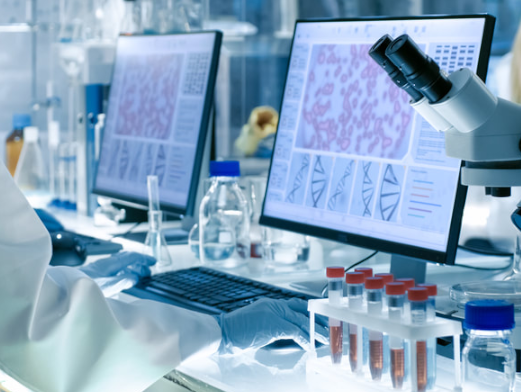
Program's Overview
The programme of Biomedical Laboratory Sciences started at INES-Ruhengeri in 2016. This program was designed to train students with the aim of preparing professionals who are competent to analyze and interpret laboratory investigations, with competencies to explain the appropriate use and meaning of laboratory test results to other healthcare professionals. The Department of Biomedical Laboratory Sciences has 2 programs including BSC-BLS and MSC-BLS programs. The BSc-BLS program allows a relevant A2 qualification to develop a professional profile in biomedical laboratory sciences. The program is designed to provide practicing medical laboratory scientists with high standards quality of training. A prospective student to enroll in Bachelor of Science with Honors in Biomedical Laboratory Sciences should present the Advanced General Certificate of Secondary School Education with a minimum of 2 principal passes from (MCB, PCB, and BCG) with A to C Grades in Biology and Chemistry. The MSc-BLS program is a professional and applied research master's that includes courses, clinical placement, and research. It has been designed to cover the basic and advanced technologies of Clinical and Biomedical Laboratory Sciences and related fields. The minimum requirements to enroll in this program includes; a BSc in biomedical laboratory sciences, a BSc in clinical laboratory, and a BSc in medical laboratory technology. In addition, the candidates should have at least a Second Class Upper Division. Applicants holding certificates/degrees from outside of Rwanda which have been approved by a Rwandan relevant body may be admitted.
Entry Requirements
-
Combinations
-
- BSc in Biomedical Laboratory Sciences
- BSc in Clinical Laboratory
- BSc in Medical Laboratory Technology.
-
Required documents
-
- Degree Certificate of BSc in Biomedical Laboratory Sciences or BSc in Clinical Laboratory or BSc in Medical Laboratory Technology.
- The candidates should have at least a Second Class Upper Division. The applicants with Lower Division with at least 3 years of experience shall be allowed.
- Applicants holding certificates/degrees from outside of Rwanda which have been approved by a Rwandan relevant body may be admitted.
Exit and Career Profile
The courses will provide graduates with leadership skills to take responsibility in national and international healthcare systems. The graduates will be well prepared to take leading roles working in Public and private clinical settings, Biomedical clinical research centers, the education sector, Quality control and quality assurance laboratories, Biological-based forensic laboratories, Pharmaceutical laboratories, Health care management systems, and Prevention of both non-communicable and communicable disease.
Contacts of the Head of Department
Offered Modules
Hematology & Blood Transfusion
| No | Module Title | No of credits | Semester |
|---|---|---|---|
| 1 | Molecular Biology and Biomedical Informatics | 15 | 1 |
| 2 | Medical Anatomy and Physiology | 10 | |
| 3 | Advanced Immunology | 10 | |
| 4 | Clinical Pharmacology and Toxicology | 15 | |
| 5 | Research Methodology and Medical Ethics | 10 | |
| 1 | Hematopathology | 30 | 2 |
| 2 | Blood Transfusion | 30 | |
| 3 | Transplantation and Immunohematology | 30 | |
| 4 | Cellular and Molecular Hematopathology | 30 | |
| 1 | Laboratory Management and Quality Assurance | 10 | 3 |
| 2 | Biostatistics and Clinical Epidemiology | 10 | |
| 3 | Clinical Placement | 60 | |
| 1 | Research and Thesis | 60 | 4 |
Clinical Microbiology
| No | Module Title | No of credits | Semester |
|---|---|---|---|
| 1 | Molecular Biology and Biomedical Informatics | 15 | 1 |
| 2 | Medical Anatomy and Physiology | 10 | |
| 3 | Advanced Immunology | 10 | |
| 4 | Clinical Pharmacology and Toxicology | 15 | |
| 5 | Research Methodology and Medical ethics | 10 | |
| 1 | Microbial Molecular Genetics | 30 | 2 |
| 2 | Microbial Pathogenesis | 30 | |
| 3 | Diagnostic Microbiology | 30 | |
| 4 | One Health and Antimicrobials | 30 | |
| 1 | Laboratory Management and Quality Assurance | 10 | 3 |
| 2 | Biostatistics and Clinical Epidemiology | 10 | |
| 3 | Clinical Placement | 60 | |
| 1 | Research and Thesis | 60 | 4 |
| Photo | Names | Qualification | Rank | Area of specialization | Bio |
|---|---|---|---|---|---|
| No profile Available | |||||
Contacts of the Head of Department





